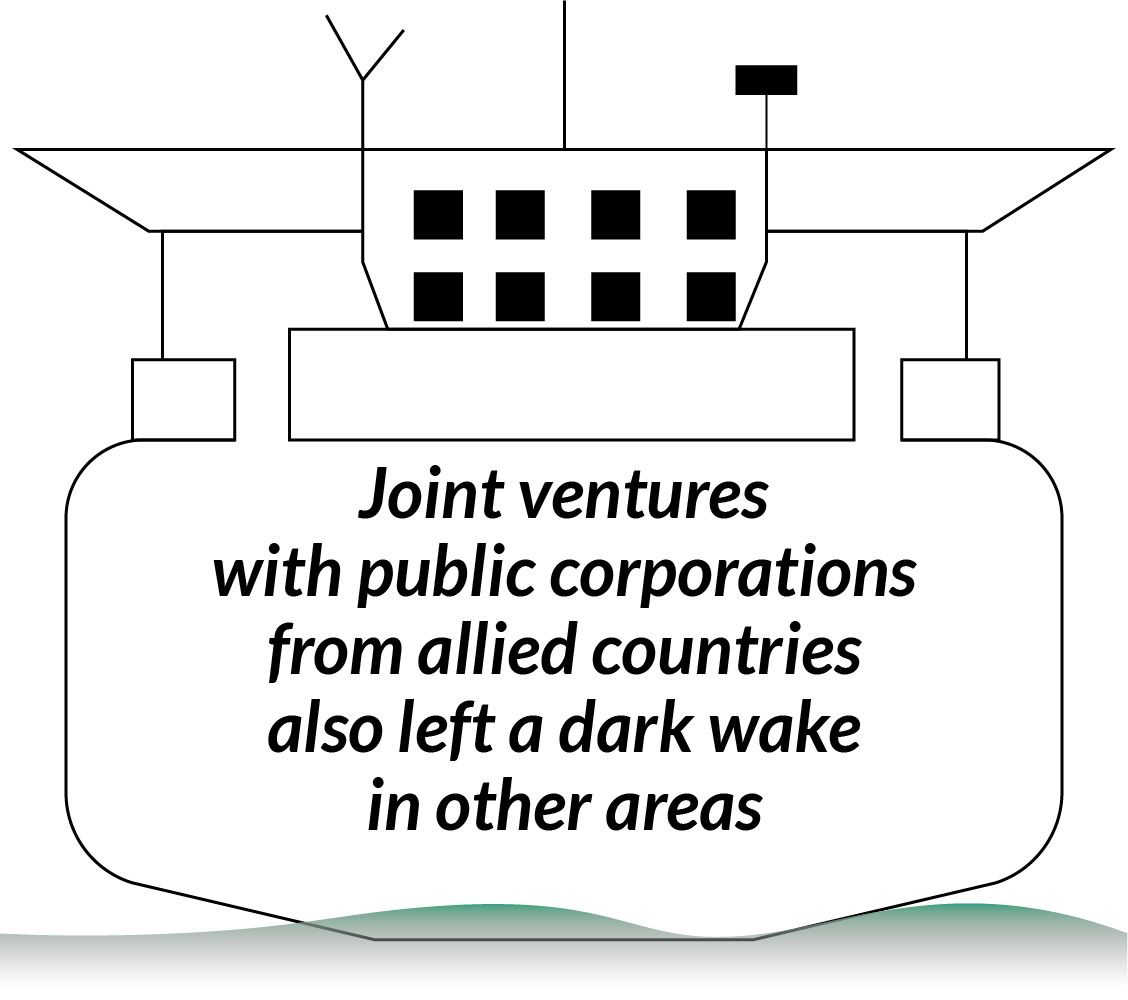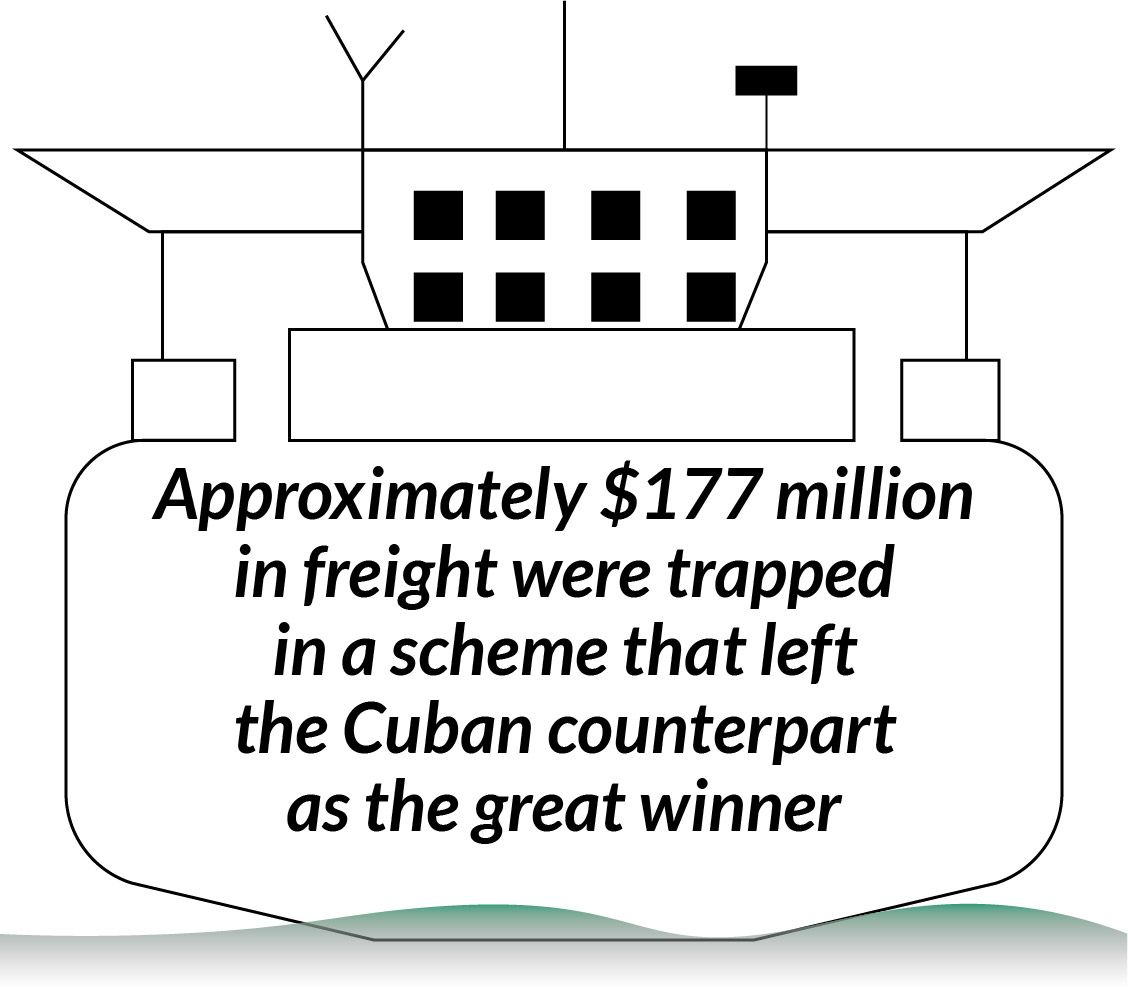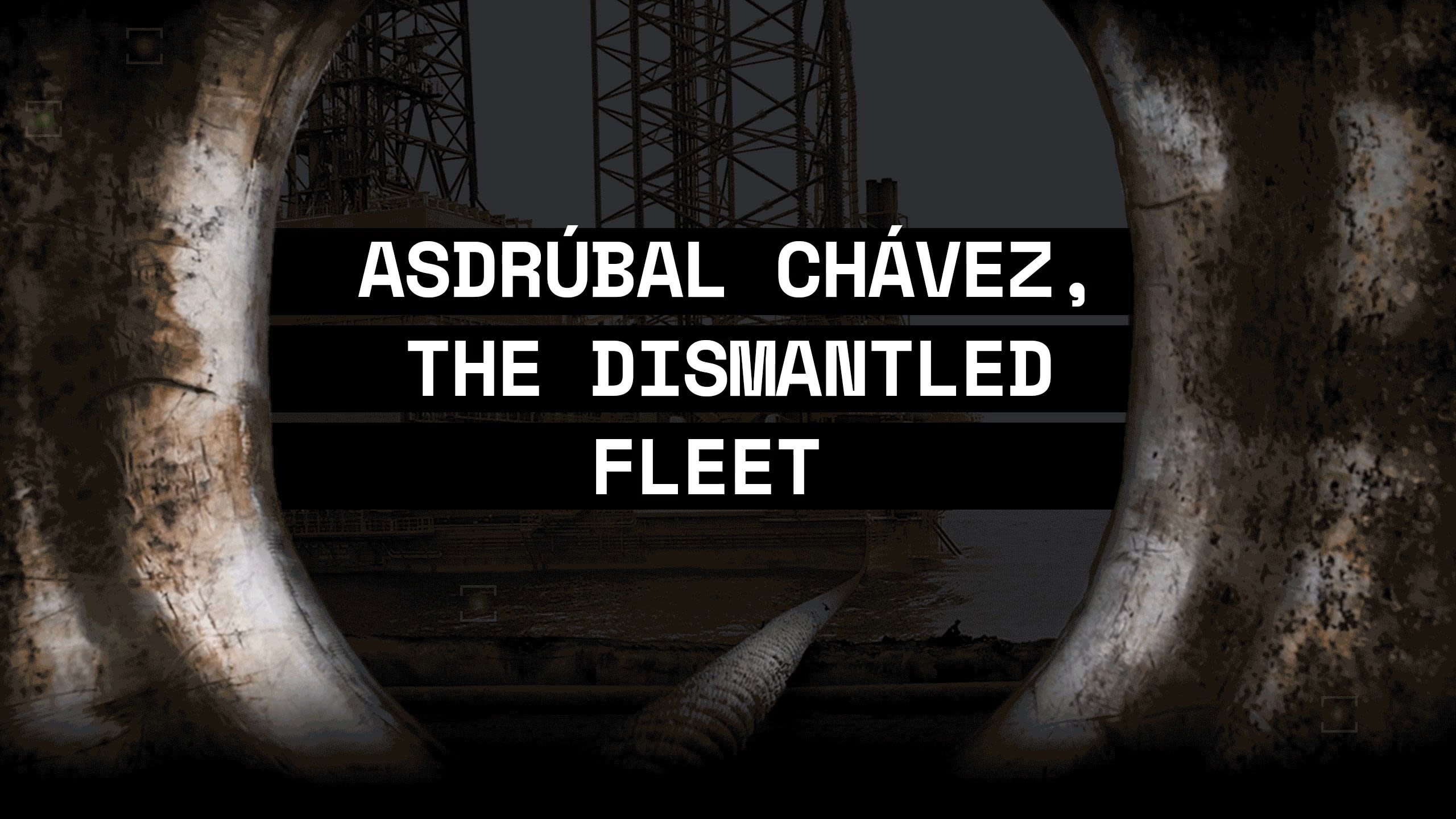
For over a decade, the current President of PDVSA held key positions in the management of the company’s oil tankers which are currently under crisis. He was the central figure around failed business agreements, including one that involved excessive charges to the Venezuelan oil corporation in a joint venture with a Cuban company
Asdrúbal Chávez took on the role of President of Petróleos de Venezuela (PDVSA) in April 2020. Appointed by Nicolás Maduro, Chávez crowned himself with an undefeated track record of 40 years of work within the State-run oil company. While some of his former colleagues, bosses and subordinates have been accused of corruption and chased by a judicial system benevolent to Maduro, the current chief of this oil company has yet to find a storm that threatens his ship to sink.
A chemical engineer, his career soared under the shadow of his cousin, the former late President of Venezuela, Hugo Chávez. Today, as the highest authority of PDVSA, Chávez has taken on the management of a crisis he could not avoid under any other work capacity within the company, including the existing conflict of maritime cargo transportation.
For almost a decade, between 2005 and 2014, Asdrúbal Chávez held important positions in the management of PDVSA’s oil tanker fleet. Nowadays, that fleet is practically dismantled. Contrary to his late relative’s plans, the company did not undergo a transformation which would enable it to depend less on private contractors. During that time, he was President of PDV Marina and also Executive Director and Vice President of Trade and Supply. These were pivotal positions for the management, maintenance and purchase of tankers belonging to the company as well as the chartering of third-party cargo ships, including those managed through binational alliances.
A web of million-dollar business agreements was woven throughout these operations. Based on their results, they did not favor the interests of the public corporation, as evidenced by this report published by Alianza Rebelde Investiga (ARI) together with the Latin American online platform for journalists CONNECTAS. This investigation was made possible by the close examination of PDVSA’s public records, internal documents and interviews with sources close to the oil company’s maritime operations.
Millions of dollars were spent on oil tankers which are not at the service of PDVSA today. Numerous losses were accumulated for lack of maintenance to the oil tankers or delays in their repairs. Many transactions related with the chartering of these vessels were surrounded by irregularities amounting to debts of titanic proportions. All of this affected not only the great oil tankers but the smaller and auxiliary boats as well.
One of the most striking examples is Transportes del Alba (Transalba), a joint venture set up between the Venezuelan oil company and a company belonging to the Cuban government, which has been a strategic ally to both Hugo Chávez and Nicolás Maduro. According to the agreement, PDVSA was forced to pay this company during 15 years a set of rates that exceeded market prices for the use of two oil tankers which were bought in 90% with Venezuelan money. As a result, approximately $177 million in freight were trapped in a scheme that left the Cuban counterpart as the great winner of this transaction, according to the analysis of the leaked documents used in this investigation and the criteria of two sources.
Two experts interviewed separately who asked for anonymity in fear of retaliation, agreed that the financial management of the company was incomprehensible. They even assume that there was corruption involved.
Transalba operates from tax haven countries. The binational company was registered in the Bahamas with two subsidiary companies used for the purchase and management of vessels registered in Panama. The presidency of both of these companies was entrusted to Guillermo Rodríguez López-Callejas, who is the brother of a powerful general and member of the Central Committee of Cuba’s Communist party. The two oil tankers managed by Transalba -a Panamax with a carrying capacity of 490,000 bbl.- are mainly used for the transportation of oil to the Antilles and Petrocaribe Member States under an oil sales alliance with credit facilities for Central America and the Caribbean created by Hugo Chávez in exchange for diplomatic support to his government.
As President of PDVSA, Asdrúbal Chávez must face the management of a crisis he could not avoid as Vice President of Trade and Supply
PDVSA paid Transalba for 15 years a set of rates that exceeded market prices for the use of two oil tankers which were bought in 90% with Venezuelan money
Transalba was one of the companies established through a joint venture policy with public shipping companies from allied countries such as China and Russia which helped construct, manage or rent oil tankers. Before the profuse use of private contracting and the rise in chartering agreements, the company began rehearsing this model since 2008 and it was presented as an example of savings success. Documents examined for this report, however, not only provide evidence of unfavorable business models, they also show management schemes where disorder and secrecy in accountability prevailed.
Problems such as these were not exclusive to binational companies. Even private agreements had their share of difficulties. Auditors and officials linked to the chartering and management of vessels warned in 2008, 2012 and 2017 about all kinds of irregularities related to the management of the shipping business in PDVSA and PDV Marina, according to documents examined for this report. Among these irregularities, they mentioned the payment of overpriced fees, favoring of contractors, leakage of confidential information to service providers, creation of overlapping monopolies, absence of procedural protocols and the disbursement of expenditures without necessary backing.
The chartering business was also promoted by the inoperability of PDVSA’s own fleet or through delays in the construction of ships which cost millions of dollars and were either never built or completed. Those suspicious of these operations are of the opinion that the neglect of these vessels was a great convenience for the flourishment of the chartering business.
Internal PDVSA reports submitted by auditors in 2017 mention the millions of dollars wasted for the 87-month delay in the delivery of two oil tankers, the Eva Perón and the Juana Azurduy. Expected to be completed by 2008, both vessels are still inside the Argentine shipyard who is responsible for their construction. According to calculations, at least $130 million were spent in chartering vessels with the same characteristics during this period of time.
A similar situation occurred when oil tankers requiring major maintenance operations were substituted by chartered vessels. In addition, undue expenses were detected in repairs carried out in international shipyards. An audit draft dated July 2015 mentioned that one of the reasons behind a budget increase in the repair of the Negra Matea oil tanker was the quote for a series of ordinary maintenance jobs that should have been carried out in Venezuela since 2014. This tanker has been in a Portuguese shipyard since 2017 due to lack of payment.
In 2014, maintenance of the Manuela Sáenz in the same shipyard was extended up to 20 additional days than what had previously been agreed upon. This meant an extra disbursement of €2.9 million. According to reports, this maintenance was agreed by the management of PDV Marina in 2014 without the necessary approval from higher authorities. An internal investigation led to the finding of sensitive information in an Excel file which pointed to the distribution of money between employees of the company who gained profit from the way the vessel’s maintenance was managed.
The current President of PDVSA, Asdrúbal Chávez, was contacted for this report but did not reply for comment. The former president Rafael Ramírez, who also served in Venezuela as Minister of Oil and is one of the main creators of the management of the Venezuelan oil fleet defended his decade-long tenure. Ramírez distanced himself from any possible irregularity and deplored the current state of PDVSA’s fleet which, according to him, forces the company to depend on external cargo ships. When he left his post in 2014, PDVSA owned a fleet of 28 vessels and had chartered 55 to either third parties or through alliances with other companies, according to the company’s annual report corresponding to that year.
“Nowadays, Maduro says that sanctions prevent us from importing. Has anyone asked him whatever happened to the tankers PDVSA owned? (…) They let them rot and today all of them have been left stranded in a ship cemetery. Tankers where not repaired in time; payments needed for their operation were not honored and now we don’t know how many ships we have. It wasn’t about leaving everything in the hands of intermediaries as Maduro is doing today. All of the oil is being managed by others”.
At least in 2008, 2012 and 2017, auditors warned about all kinds of irregularities inside PDVSA and PDV Marina
In internal reports published in 2017, PDVSA auditors stated that the cost opportunity for the 87-month delay in the construction of the Eva Perón and the Juana Azurduy tankers was the loss of millions of dollar
Pocketed chartering_
Asdrúbal Chávez’s career rose after the oil shutdown crisis which happened in Venezuela between November 2002 and February 2003. Workers from the oil industry had gone on strike against measures taken by his President-cousin. Actions taken, considered by the government as sabotage, paralyzed PDVSA’s operations including the cargo transportation of oil and its derivatives. It was in this scenario that Asdrúbal Chávez was promoted in 2003 to general manager of El Palito, one of the most important refineries in Venezuela’s oil industry. From here on, he began to climb a ladder which even led him to become President of Citgo in the United States as well as Vice Minister and later Minister of Oil in Venezuela. In 2018, US authorities denied his work visa and he had to leave the country.
His management of key areas related to the PDVSA fleet were completed in a period of ten years when an oil boom led to a $100 price tag per barrel. Manna rained on the company’s treasury during this time and led to a multiplication in the value of cargos which were entrusted, among others, to companies such as Transalba. This company had an equal shares agreement between PDVSA and the Cuban State-owned company Internacional Marítima. There was never a formal public explanation as to why it was convenient for national interest that this company’s headquarters would be established in the Bahamas. This was also the subject of a 2016 report published by Runrunes and was part of the Bahamas Leaks investigation released by the International Consortium of Investigative Journalists (ICIJ).
A similar logic was employed with the register of two subsidiaries in Panama: Trocana World Inc. and Tovase Development Corp. These two arranged the purchase and further management of two tankers under the loupe: the Petión and the Sandino. The presidency of these companies has always been Guillermo Faustino Rodríguez López-Callejas, brother of Luis Rodríguez López-Callejas, a Cuban general who once was Raúl Castro’s son in law and who leads a conglomerate of companies belonging to the Cuban Revolutionary Armed Forces. Both Trocana World Inc. and Tovase Development Corp. as well as General Rodríguez López-Callejas have been sanctioned by the US Treasury Department.
According to documents obtained for this investigation, the tankers were purchased from China at a price of $135 million. 90% of the amount was put forward by the Venezuelan National Bank of Development (Bandes) and the remaining 10% in equal amounts by the partners of Transalba. The Petión was received in February 2009 and four months later came the Sandino. When the second vessel arrived, President Hugo Chávez said that its incorporation into the fleet represented a “strategic, historic, moral and ethical change”. For Asdrúbal Chávez, PDVSA’s Vice President of Trade and Supply, the addition of this tanker meant “saving between a half and one dollar per barrel a year which could generate annual savings of between $30 and $50 million”.
However, analyzed documents and experts agree that the business model put PDVSA at a disadvantage. The 15-year credit agreement signed by Transalba covered an unusual time period in the oil market. Given the fluctuations in supply and demand, the usual time period for these types of agreements is never higher than 24 months. An inventory of the fees of active ships in April 2015 confirmed the exceptionality of these conditions. A vessel of the same profile, chartered to third parties for two years, had fees that were not greater than $20,000 a day. The amount agreed with Transalba was for $28,500 dollars a day which meant an excess on average of 131%, during times of a charter market slump which also included models other than the Panamax.
Internal documents reveal that part of the plan was to capitalize on the high fees of self-owned tankers. This would not only allow them to pay off the received credit but to also acquire another six vessels. After a decade, no other purchases for ships were announced.
Specialists consulted agreed that the contractual terms were difficult to understand. “It is not easy to infer. Every negotiation has its peculiarities. Of course, there is certainly a market that should more or less govern the levels of chartering rates, which in this case, in a certain way are unjustified”, replied a broker representative. Another expert put forward a bolder hypothesis: “Joint ventures act as intermediaries that negotiate, in this case with PDVSA. The Trade and Supply Management approved it, even though it was aware of the high costs".
In an interview for this report, Rafael Ramírez defended the associations model with PDVSA participation for intermediation purposes. When asked if the conditions of the Sandino and the Petión were favorable, he remitted the question to Asdrúbal Chávez.
Both tankers have been mainly used to transport hydrocarbons to Cuba and Petrocaribe countries in a covenant applied with discretion and little control, as revealed by a Connectas report entitled #Petrofraude.
During the oil boom decade, more than $30 billion were dispatched to the island governed by the Castro brothers (almost half of this was for the generation of electric energy, according to a report by El Pitazo) while another $28 billion were distributed among the other beneficiaries.
Transalba not only loans its services to PDVSA through the Sandino and the Petión. It has also served as an intermediary. In 2015, the company managed a fleet of 11 third-party vessels, according to an inventory from the Chartering Management office of which this report had access to. 10 of them were used for the transport of refined products and one for the cargo of crude oil. The list included a Panamax model of greater capacity than that of the two aforementioned tankers but with lesser fees. Two other refined products cargo tankers were accounted for in which Transalba figured as its owner and whose incorporation to the fleet was never disclosed. According to data managed for this investigation, these two vessels do not appear to be owned by the Venezuelan-Cuban company.
Joint ventures with public corporations from allied countries also left a dark wake in other areas. The 2017 audit, for example, informs about PDV Marina’s refusal to hand over financial information regarding the CV Shipping company in which PDVSA was associated with the State-run PetroChina International which managed the fleet of Very Large Crude Carriers (VLCC) made up by the tankers known as the Ayacucho, the Boyacá, the Carabobo and the Junín, christened in honor of the battles of independence in Venezuela. These tankers were built by the Chinese company and bought by PDVSA.
In August 2020, Reuters reported that PetroChina International seized three of the tankers (Junín, Boyacá and Carabobo) as compensation after US sanctions caused CV Shipping to go bankrupt.
PDVSA also established a direct alliance with the Russian company Sovcomflot, who provided the Venezuelan oil company with almost 15% of its fleet. Business did not end well: the company accused PDVSA of not paying its fees, sued them and in 2017 seized a $20 million oil cargo in order to force them to honor their debts.
Beyond binational joint ventures, other private shipowners and operators rounded business deals with PDVSA. Among them, were the Greeks who have global power in the naval business world. In 2012, an internal presentation drafted by PDV Marina executives mentioned the Akron Shipping Company, warning about their dominant position on internal coastal trade: “They covered 80% of marine fuel transportation operations”. The authors of this document valued this event in a negative manner: “The distribution (…) to the domestic market is almost exclusively in the hands of foreign shipowners which is contrary to our Nation’s strategic interests”.
Three tankers related to Akron Shipping were mentioned in that presentation: the Fiorella, the Fillipa and the Lizzie. All of them continue to operate in Venezuela. A source who worked for the Greek company assures that the company remains active despite having a new name: Asian Charm. According to this source, the company has a fleet of nine ships –including the three already mentioned– which have been chartered to PDVSA. They are scarcely moved and have been underused due to the fuel crisis. Therefore, their charter seems foreign to the real necessities of the oil company. Spokespersons for Asian Charm were contacted for this report but no reply was given.
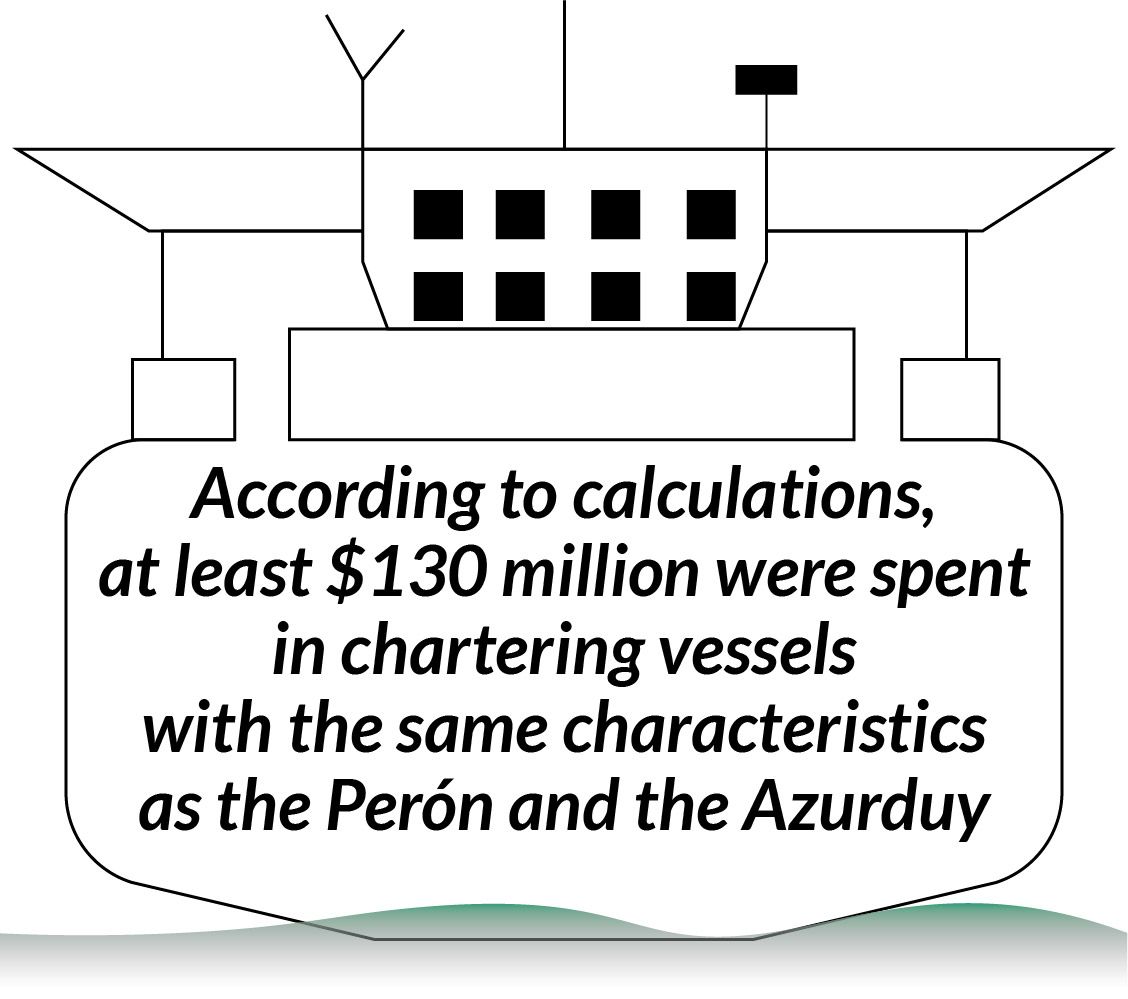
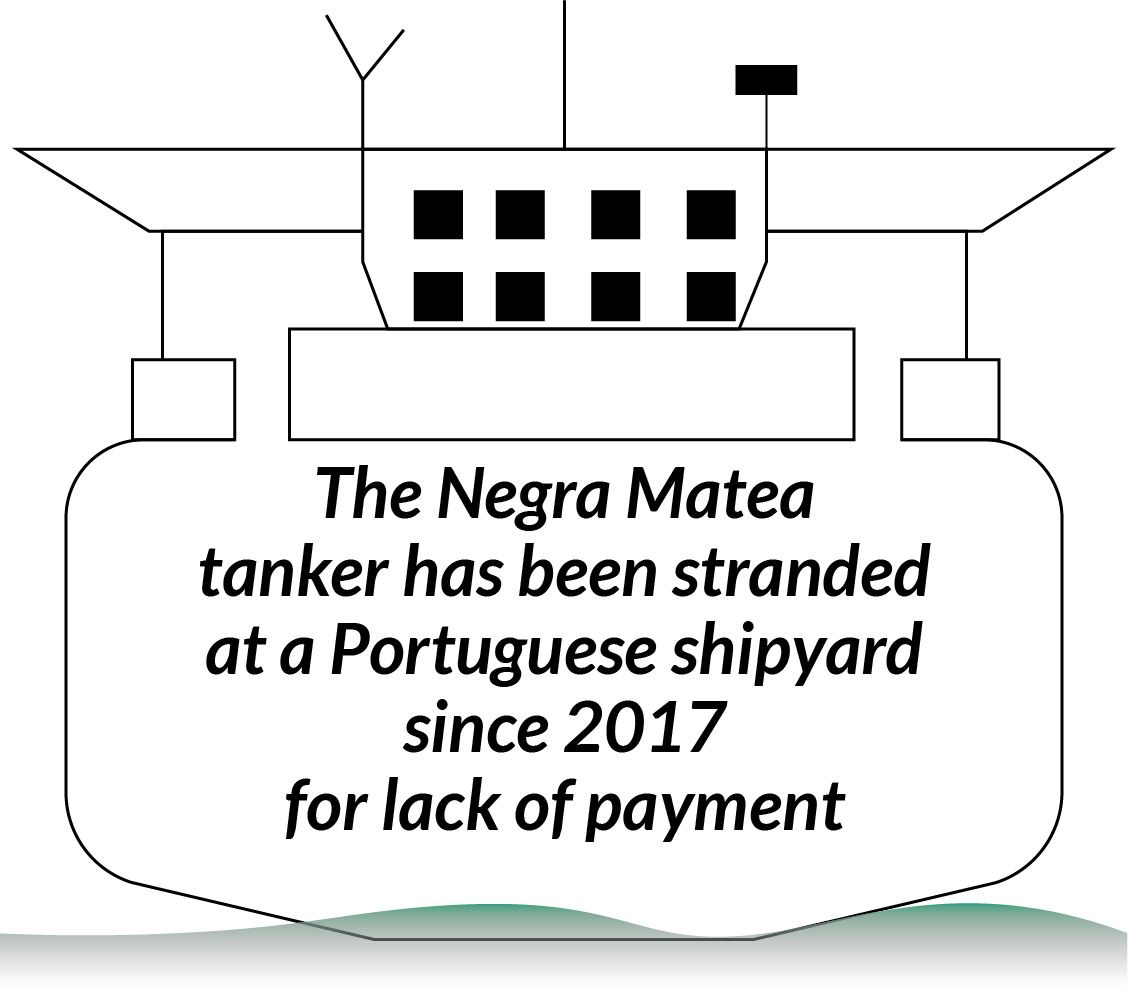
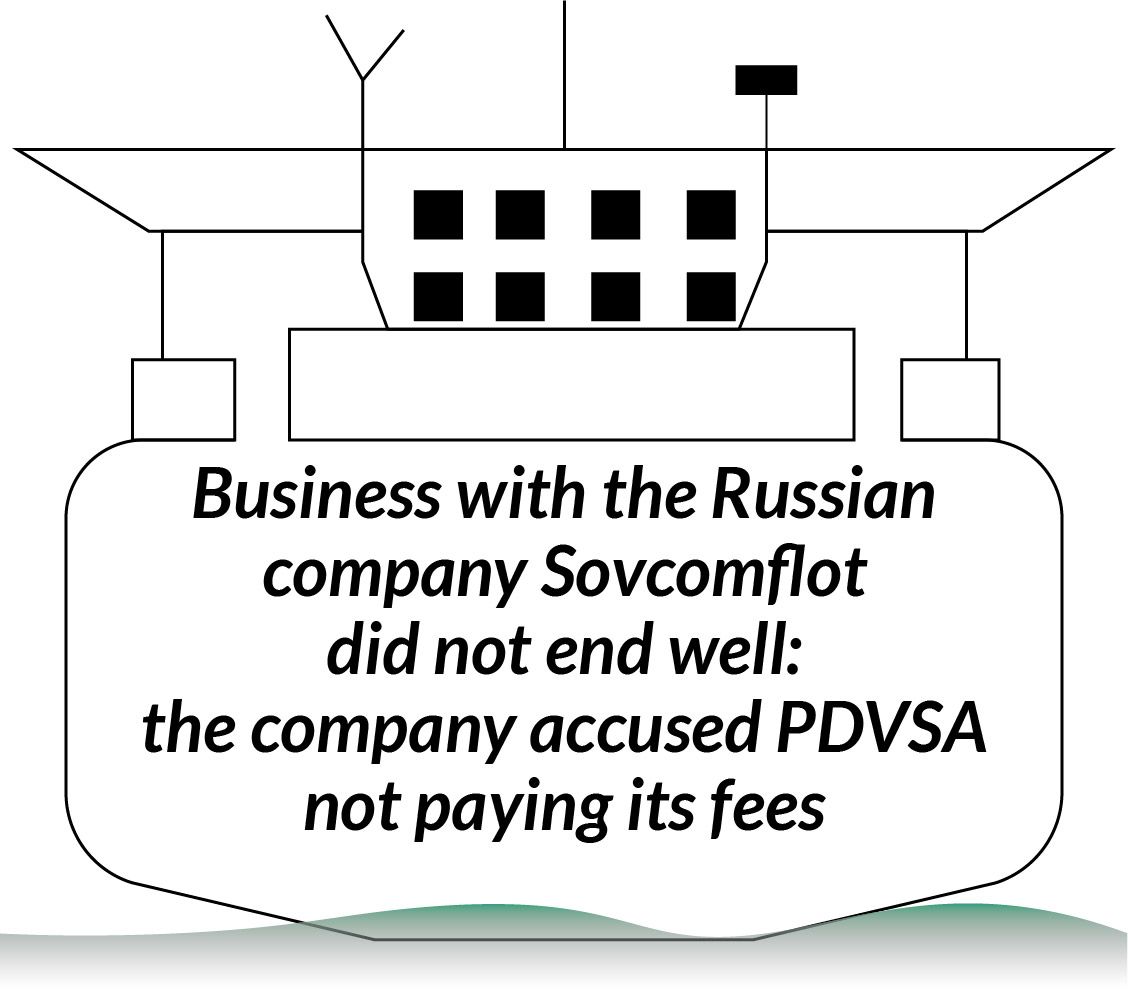
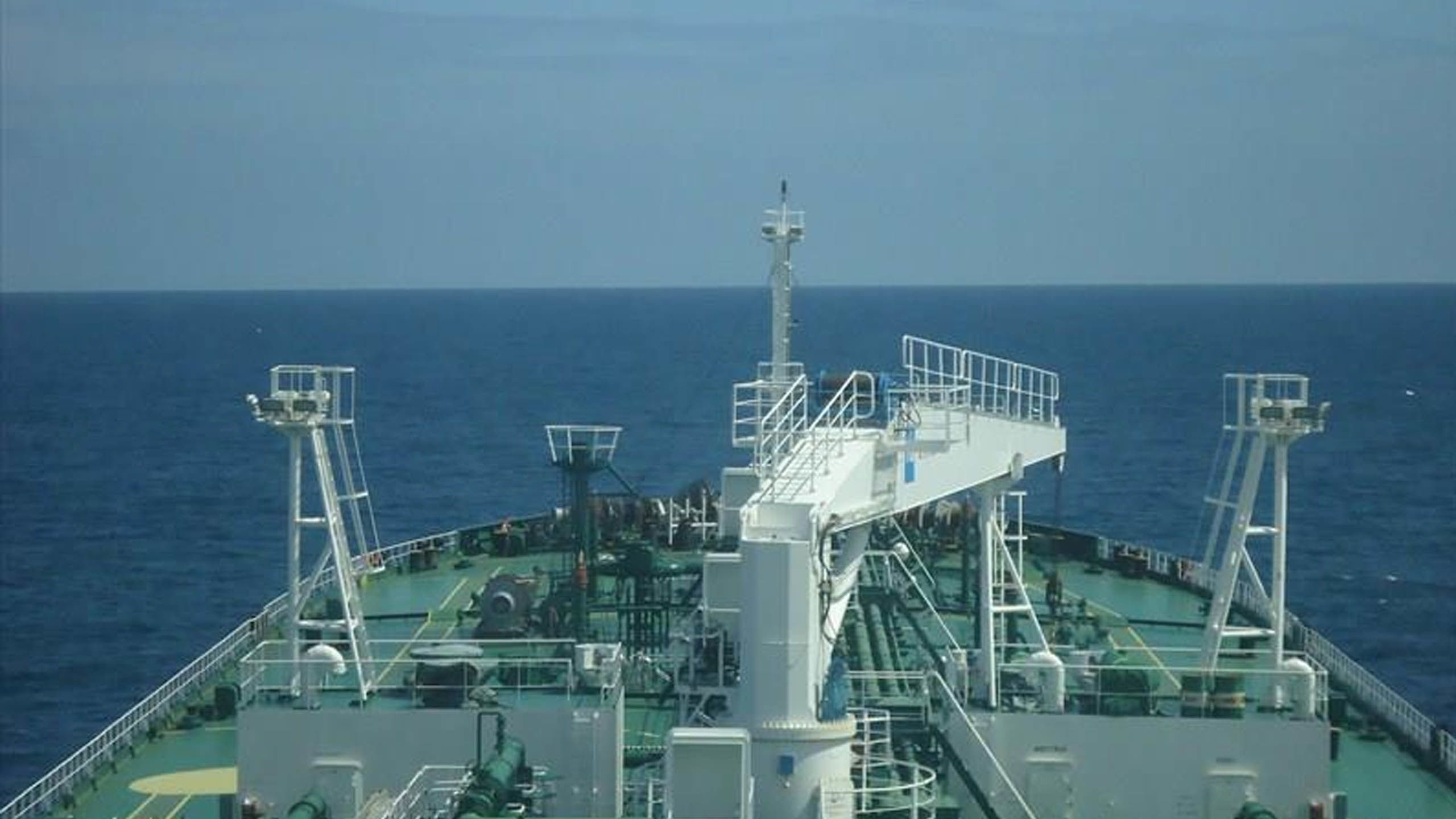
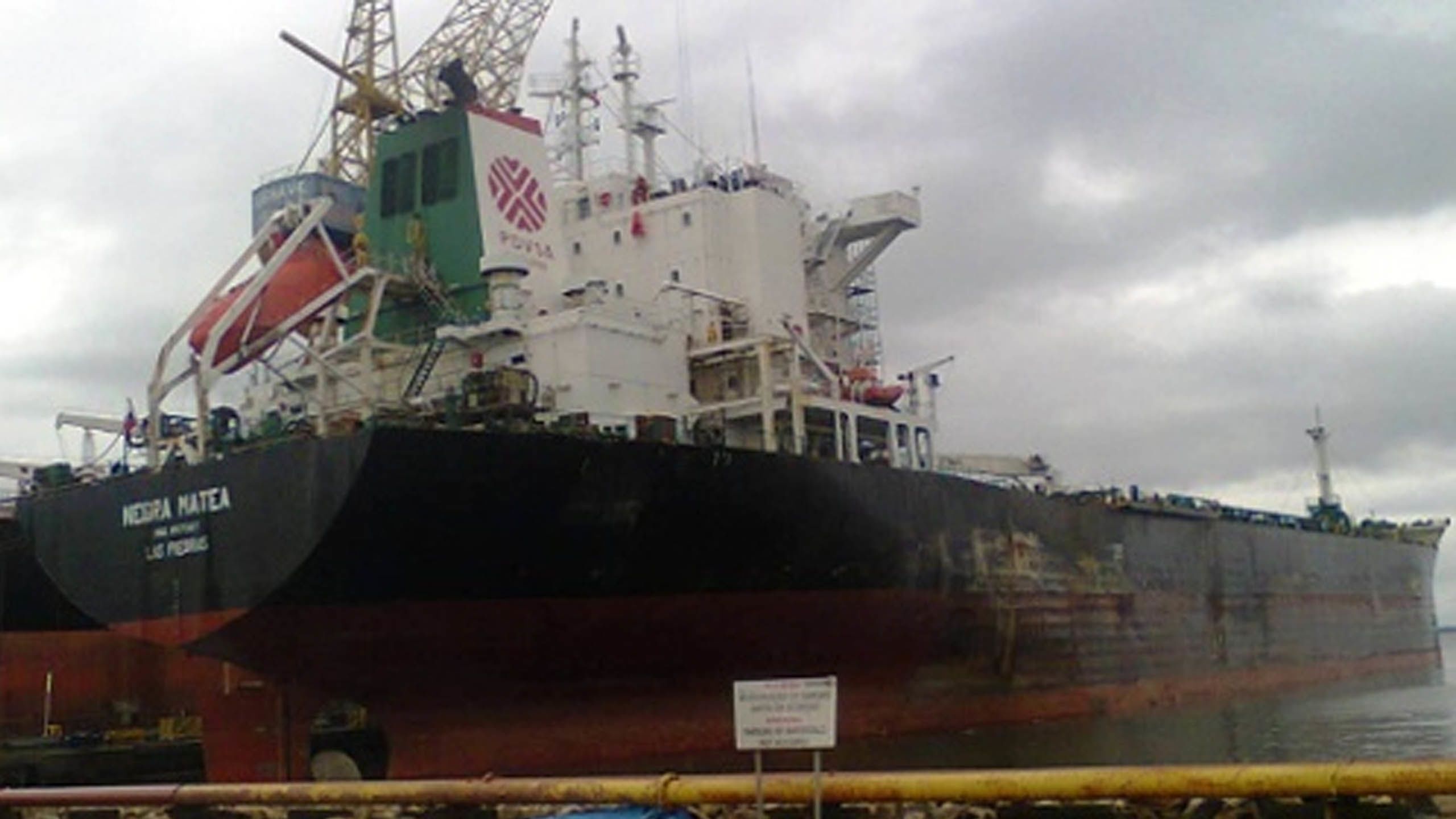
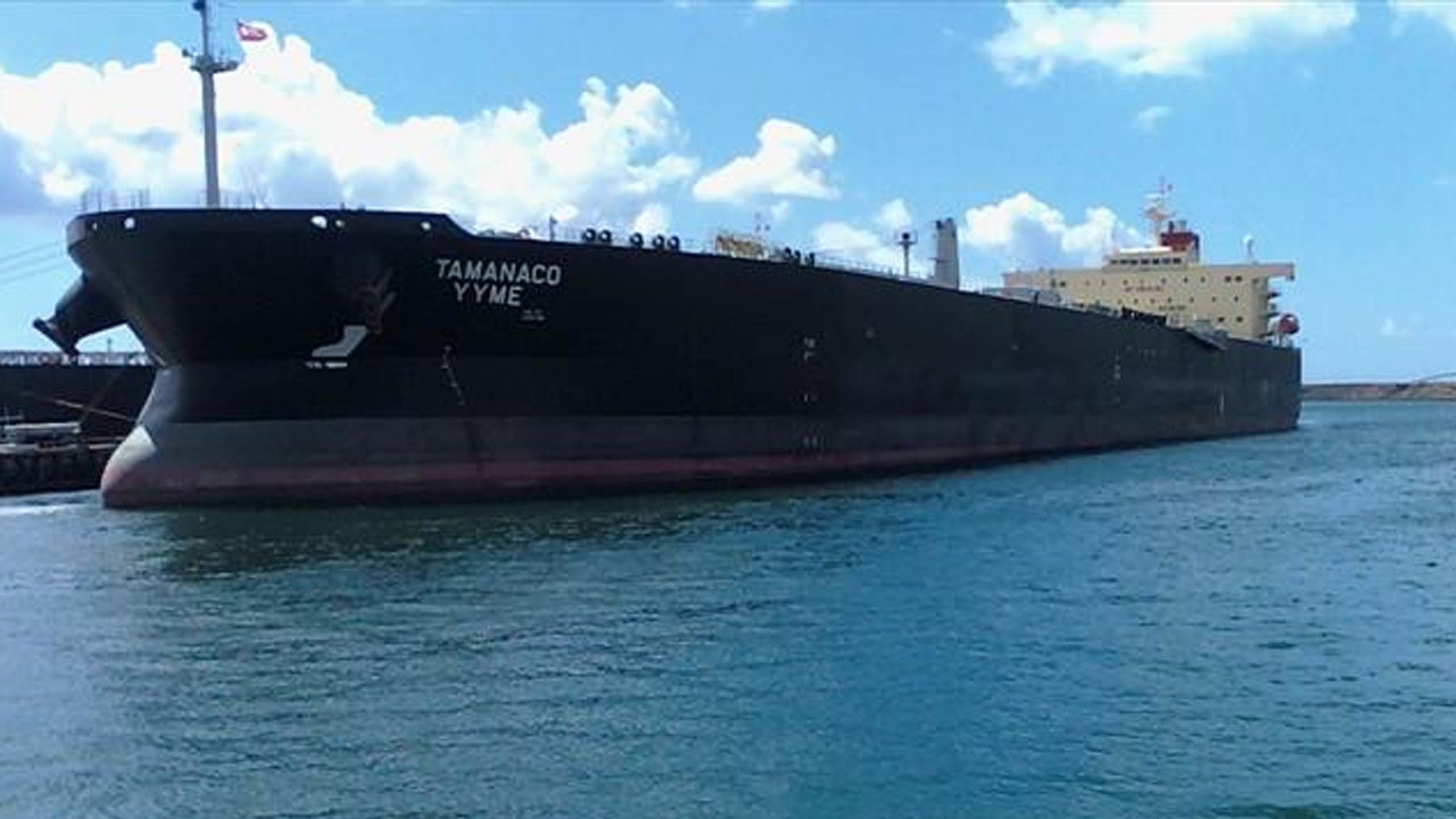



An uncertain drift_
Barely two months in as President of PDVSA, Asdrúbal Chavez faced the challenges of his former subordinates: the workers at PDV Marina. With the support of union leaders, the went on strike, launched an attack on social media and threatened with mass resignations. Syndicates accused Chávez of “the destruction” of PDV Marina.
The subsidiary was founded in 1990 and was substituted in May 2020 by the company known as PDV Puertos. This change had been announced three months earlier by the presidential commission in charge of the restructuration of an industry created by Nicolás Maduro with Asdrúbal Chávez on board as second in command.
The conflict was extinguished with the unheard-of payment of a $150 bond for the workers. However, the work environment was gravitated by the workers disagreement with the situation of PDVSA’s fleet which is made up by vessels of different capacities and functions in six categories which have been differentiated by the names they have each been christened with. Among the oil tankers in PDVSA there are Greek gods, Venezuelan caciques and rivers as well as battles and heroines of the Independence as well as foreign heroes such as Petión and Sandino who were revolutionary leaders in Haiti and Nicaragua. At least eight on the list are currently inoperative due to pending maintenance work and delays in the processes of their international navigation certifications. This represents approximately a third of the self-owned fleet.
The storm that engulfed them was predictable from the horizon. Five years after Asdrúbal Chávez began his leadership at PDV Marina and in the Trade and Supply department, the corporation’s management reports revealed obstacles in both areas which had worsened over time. The 2010 report pointed out, among others, that budgetary reductions had affected preventive and corrective maintenance; the lack of spare parts; limitations to ensure helmets and machinery; and accumulated debts with suppliers. This at a time of declining oil prices in comparison with the previous year.
An internal document drafted by a PDV Marina executive in 2012 and obtained by reporters of this investigation warned that the fleet “was at risk” and considered that dependency on foreign company chartering was excessive. That year, a claim was filed in the Offices of the Public Prosecutor and the General Comptroller of the Republic which questioned, among other affairs, that the chartering of vessels mined PDVSA’s finances. A year later, union workers of Puerto La Cruz, Anzoátegui, met with Asdrúbal Chávez to talk to him about “management corruption actions” in PDV Marina. These were mere breezes, among many others, announcing the storm.
Since 2017, a PDV Marina oil tanker, the Negra Matea, has been moored in Portugal. Debts claimed by the Lisnave shipyard for maintenance work already carried out have not been paid. Among the variables associated to the case, there is one which was mentioned in an audit draft dated July 2015. This document analyses a supplier’s budget which was enlarged by a series of delayed ordinary repair jobs which should have been done to the tanker in Venezuela since 2014, namely prevention of the “corrosion of pipes on deck” to the provision of basic elements for the main engine.
According to this report’s calculations, the loss of cost opportunity for the non-operation of this tanker amount to more than $29.8 million. Had this vessel been operational, the chartering cost to third parties could have been saved. Last year, the ship’s crew published a letter which revealed the food supply restrictions they were facing and denounced feeling abandoned.
Just as extended repair jobs have engrossed the charter business, the delays in the execution of an ambitious plan to purchase oil tankers since 2004 has had an unfavorable impact in PDVSA’s finances. According to an internal PDVSA audit report in 2017, the lack of the two oil tankers requested to Argentina led the State oil company to sublet two similar vessels for 87 weeks at an average daily cost of $25,000. This is just an example, another 15 tankers for which PDVSA made millionaire advance payments are yet not available in the corporation’s fleet.
With the US sanctions and its fleet at risk, the chartering of tankers has been pivotal to mobilize PDVSA’s scarce production and receive minimal fuel imports as well. Analysts are of the opinion that the recent enactment of the so-called “Anti-Blockade Law” (Ley Antibloqueo) by the National Constituent Assembly which responds to Nicolás Maduro, will blanket the legality of these transactions. As President of PDVSA, Asdrúbal Chávez will continue to be able to use the one protection that has given him the most power: his family relation to the late Hugo Chávez. Although he is facing plenty of storms, nothing on the horizon indicates that his ship will sink.
